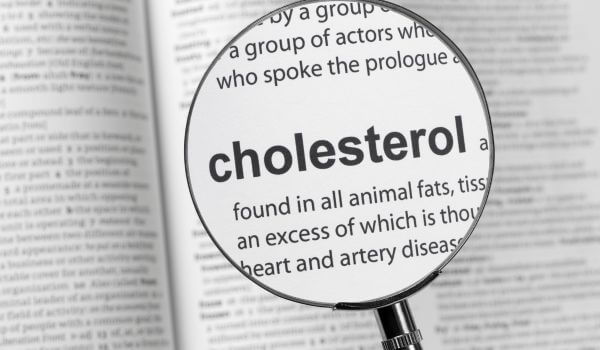 What is heart failure?
What is heart failure?
Heart failure is a term that describes what happens if the heart can’t pump enough oxygen-rich blood to support all the other organs in the body. Treating heart failure can involve a range of medications, as well as lifestyle changes and, in extreme cases, surgical interventions or implants of specialized devices.
Heart failure is not the same as cardiac arrest, which means the heart has stopped beating. In that case, unless the heart can be restarted quickly, death will follow. A heart attack occurs when there’s some blockage to the flow of blood in one or more coronary arteries, which reduces oxygen supply to the heart muscle. Symptoms often include chest pain or discomfort, shortness of breath, and pain radiating to the arm, jaw, or back. It does not necessarily result in the heart stopping.
While heart failure is a serious condition that is incurable, it does not mean that some heart failure treatments and lifestyle changes can’t be used to slow down the progress of the condition and ease some symptoms. There are many heart failure treatment options, and new ones are becoming available all the time that improve the outcomes for people living with the results of a weak heart.
How does a healthy heart work?
The heart has a dual pumping action. Blood comes in from the body through the veins into the right upper chamber (right atrium). It moves into the lower right chamber (right ventricle) and is pumped into the lungs, picking up oxygen and discharging carbon dioxide. The blood then travels back to the heart through the pulmonary veins into the left upper chamber (left atrium) and into the lower left chamber (left ventricle). The left ventricle is the main pump that pushes oxygenated blood back out into the rest of the body through the aorta.
What are the causes of heart failure?
Heart failure develops because the muscles in the heart become weak or stiff, reducing its ability to pump blood through the blood vessels normally. There are two main types of heart failure:
- Systolic heart failure, where the left ventricle can’t contract vigorously enough to pump oxygenated blood out into the rest of the body. This is usually diagnosed if the ejection fraction (HF) is lower than 50%, which indicates that each beat is pushing out too little blood even though the ventricle was full.
- Diastolic heart failure, where the left ventricle can’t relax enough to fill with blood during the resting phase. This is indicated by an ejection fraction higher than 50%, which is where the total volume of blood ejected with each beat is lower, mainly because the ventricle is not full.
When either of these happens, congestive heart failure develops from the accumulation of blood and fluid in the lungs, and the body doesn’t get enough oxygen-rich blood to work properly. These can lead to life-threatening symptoms of heart failure.
Heart failure is most often caused by other heart conditions, including
- Atherosclerosis (coronary artery disease or CAD)
- Heart attack
- High blood pressure
- Arrhythmia (where the heart rhythm is irregular)
- Heart valve problems
Many other contributory factors can increase the risk of developing heart failure, such as:
- Genetic predisposition
- Lifestyle habits such as alcohol or drug abuse
- Obesity
When there is no identifiable reason for heart failure, it can be labeled idiopathic cardiomyopathy (idiopathic means “no known cause”).
How is heart failure diagnosed?
The overall term for heart muscle weakening and damage is a cardiomyopathy, which means “heart muscle disease.”
In left-sided or left-ventricular heart failure, the left side must work harder to pump the same amount of blood. The primary standard that doctors use to diagnose heart failure is the percentage of blood the heart can pump with each beat is measured by a unit called ejection fraction, or EF. This measures how strongly the left ventricle squeezes blood out of the heart. For a healthy heart, the EF reading is between 55% and 75%.
There are different types of heart failure. If the ventricle can’t fill with enough blood in the relaxing phase between contractions (EF measures between 40% and 55%), the diagnosis is heart failure with preserved ejection fraction (HFpEF). If the EF measure is below 40%, it indicates that the ventricle isn’t ejecting enough blood to the body, and this is heart failure with a reduced ejection fraction (HFrEF).
Patients with HFrEF typically exhibit symptoms such as shortness of breath, fatigue, reduced exercise tolerance, fluid retention (edema), and rapid heartbeat. HFpEF patients can experience some of the same symptoms, but have a better exercise capacity. They may also be more prone to develop breathing-related (pulmonary) symptoms, such as a dry cough or breathlessness when resting.
What are the results of heart failure?
- Depletion of normal kidney and liver functions.
The kidney works to eliminate excess sodium and waste products by filtering the blood. In congestive heart failure, the body retains more fluid, and kidney function starts to fail. Chronic kidney disease and congestive heart failure go hand-in-hand, each one reinforcing the progression of the other. Passive hepatic congestion in the liver occurs when the heart can no longer pump blood efficiently, causing an accumulation of blood in the liver. This can impair the liver’s ability to function correctly. - Shortness of breath during ordinary activities.
- Having breathing difficulty when lying down or sleeping.
- Swelling in the feet, legs, ankles.
- Changes in appearance, like a bluish discoloration of the skin and lips. This is caused by cyanosis from inadequate oxygen levels in the blood.
- Weight gain.
- General weakness and tiredness.
What are the best options for treating heart failure?
For patients with HFpEF, doctors treating heart failure focus on managing and improving lifestyle choices, treating the high blood pressure and other underlying conditions such as elevated blood pressure, and addressing symptoms. The choice of therapy will depend on each patient’s specific condition, symptoms, and response to treatment.
Additionally, lifestyle modifications such as dietary changes, exercise, and fluid management may play a crucial role in treating heart failure of HFpEF patients. They must work closely with their healthcare providers to develop a personalized treatment plan that best suits their needs.
Calcium channel blockers (CCBs) like Cardizem, or Norvasc help fight hypertension by blocking calcium entry. While some studies have suggested potential benefits of CCBs in HFpEF, there are mixed findings, and treatment with CCBs should only be done in consultation with a healthcare specialist.
There have been recent developments in medications for treating heart failure. The use of SGLT2 inhibitors represents a new class of medication that can be used to treat HFrEF specifically. In October 2023, we published an in-depth study of this new development, focused on the FDA’s approval of Farxiga to treat heart failure. This medication has shown significant benefits in reducing hospitalization and improving outcomes for heart failure patients. More was published in October 2023 in our article on expanding diabetes meds into treating heart and kidney failure problems. “Approved drugs in the GLP-1 receptor agonists and SGLT2i classes have demonstrated consistent and significant benefits in improving cardiovascular outcomes – including heart attack, stroke, heart failure, and cardiovascular death.”
Treating heart failure for patients with HFrEF needs to be more aggressive and often involves medications like ACE inhibitors, beta-blockers, diuretics, and sometimes device therapy like implantable cardioverter-defibrillators (ICDs) or cardiac resynchronization therapy (CRT).
Controlling blood pressure in patients with hypertension is typically the preferred line of attack. It provides multiple benefits, such as helping prevent or slow the progression of atherosclerosis, coronary artery disease, and kidney damage. The main choices are:
- Angiotensin-converting enzyme inhibitors (ACEIs) include Vasotec, Zoprotec, Vasodip Combo or Altace.
- Angiotensin II receptor blockers (ARBs) such as Diovan, Edarbi, Edarbyclor, Cozaar, Atacand, Hyzaar, Entresto, or Avapro.
- Combining ACE inhibitors and ARBs may be considered for patients with HFpEF. However, this approach should be carefully assessed and individualized for each patient’s needs based on regular blood tests. By targeting Angiotensin II, ARBs and ACE inhibitors work together to exert anti-inflammatory and antioxidant properties.
There appears to be a preference for angiotensin receptor blockers (ARBs) over ACE inhibitors as a primary long-term treatment for HFpEF. ACE inhibitors are not typically used as a first-line therapy, and ARBs also seem to compare better in terms of the side effects of ACE inhibitors.
- Beta-blockers like Tenormin, Bystolic, Lopressor, Zebeta, or Coreg block the hormone epinephrine, which lets the heart beat more slowly and with less force. One study published by the American College of Cardiology concludes that beta-blockers can produce better outcomes in heart failure patients with HFrEF but showed no benefit for those with HFpEF.
Diuretics such as Lasix, Moduret, Lozol, or Aldactone are the primary treatment for reducing congestive symptoms associated with fluid buildup in HFpEF. They improve the kidneys’ ability to excrete more salt, making them essential in managing HFpEF. They help reduce fluid retention and alleviate symptoms such as edema and shortness of breath.
Combining SGLT2 (Farxiga) inhibitors and GLP-1 receptor agonists (Ozempic) treatment provides synergistic benefits for patients with HFpEF, improving their cardiac outcomes and overall health.
Mechanical heart pumps (left ventricular assist devices LVADS) can be implanted to assist the heart’s left ventricle in pumping blood to the rest of the body. It is used when the heart is too weak to perform this function effectively.
Heart transplants can be used as a last resort when all other treatments have failed. The average life expectancy for all patients receiving a heart transplant is under ten years. Younger patients can expect more extended life expectancy.
Questions we are asked
What is Heart Failure?
The common question focuses on understanding the basic definition of heart failure. It is a condition in which the heart muscles weaken and can’t pump enough oxygen-rich blood to the rest of the body. The condition can become chronic and worsen over time, leading to other cardiac failures.
What causes heart failure?
There are several possible causes of heart failure. These may be related to the heart itself, such as a heart attack (myocardial infarction), high blood pressure (hypertension), diseased heart muscle, heart valve disease or structural defects, infection of the heart muscle, or abnormal heart rhythm. Outside of the heart, conditions such as anemia, pulmonary hypertension, and amyloidosis can also lead to heart failure, as can lifetime practices like smoking, recreational drugs, and excess alcohol consumption.
What is the difference between heart disease, heart failure, and a heart attack?
Both heart failure and a heart attack come under the umbrella terms “heart disease,” as well as coronary heart disease, structural heart defect (defective valves or chambers), and arrhythmia (irregular heartbeat). “Heart attack” refers to a myocardial infarction (MI), where a blockage stops oxygen-rich blood from reaching the heart muscle. Heart failure is diagnosed when the heart becomes too weak to pump enough blood out into the rest of the body to supply oxygen-enriched blood. It has not completely stopped working.
How do you treat heart failure?
There is no cure for heart failure. The main focus of treatment is to slow down the progression of the condition and improve the patient’s quality of life and life expectancy. Lifestyle changes like quitting smoking, restricting alcohol, diet management, and proper exercise are all beneficial.
Drugs that act directly on the heart, like angiotensin-converting enzyme (ACE) inhibitors or angiotensin II receptor blockers (ARBs), can be taken individually or in combination. Other drugs that indirectly reduce the strain on the heart, such as diuretics, beta-blockers, vasodilators, calcium channel blockers, SGLT2, and GLP-1, can also be prescribed.
In more severe cases, doctors can opt for medical devices implanted in the heart, like the implantable cardioverter-defibrillator (ICD) or the left ventricular assist device (LVAD). Finally, surgery options, such as coronary artery bypass or heart valve repair, may be chosen to physically repair any damaged parts of the heart itself or the arteries and veins that carry blood into and out of the heart.
Do ACE inhibitors increase cardiac output?
ACE inhibitors exert a balanced vasodilator (blood vessel dilation) effect in patients diagnosed with congestive heart failure. They do not induce tachycardia (heart rate acceleration) or fluid retention. Central and systemic blood pressures are reduced, while cardiac output is increased.

 What is heart failure?
What is heart failure?














